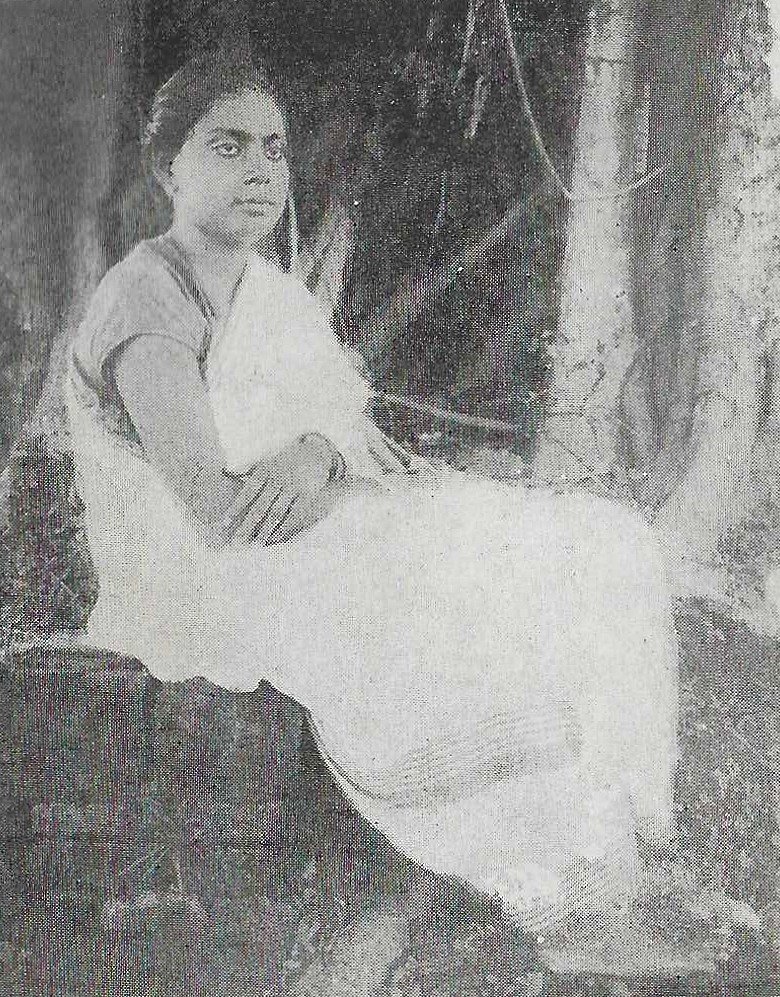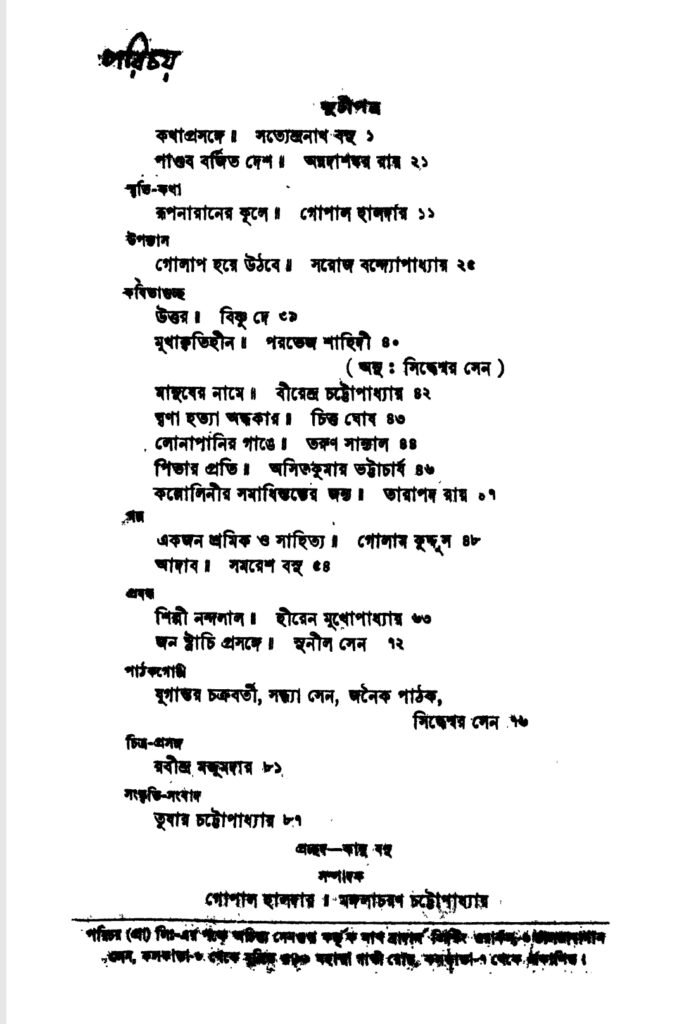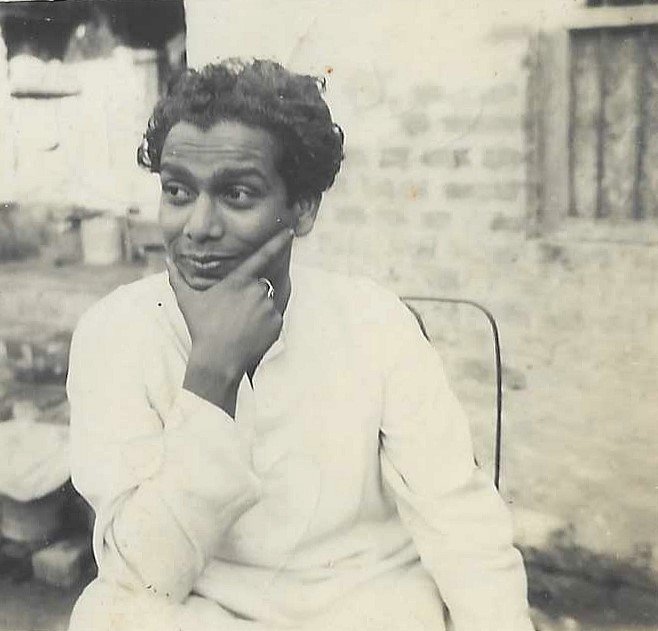LIFE OF SAMARESH BASU
Samaresh Basu’s life endorses the saying that truth is often stranger than fiction. Indeed, his life was no less ordinary than his literary creations. One can even find compelling parallels between his life and his literature. This section tells the story of Samaresh’s life, with its highs and lows, accolades and brickbats, highlighting the author’s personal and professional milestones through the years.

Samaresh was born on the 11th December 1924 to father Mohinimohan Basu and mother Shaibalini Basu. He was born in his paternal house in the village of Rajanagar under the Munshiganj sub-division in the district of Dhaka. On his birth, he was named 'Torbori' or 'Torboira' which means 'one who rushes' in the local dialect, since he was born prematurely.

Narayanganj, Dhaka, where Samaresh grew up was a land of many rivers. Samaresh from the very beginning, was struck by wanderlust. As a boy, he used to set out on a small dinghy and spent many a afternoon exploring Dhaleshwari, Buri Ganga and its adjacent landscapes. School and formal education never really attracted him. However, he studied for the first 7 years in school in Dhaka, first at Girish Master's pathshala and then at Gandaria Graduate School.

He moved to Naihati where his elder brother Manmathanath was posted for his job with the Indian Railways. He was admitted to Mahendra High School, but he dropped out after his eighth grade after being 'not promoted'.

With a bunch of friends from school, he started editing a hand-written magazine called Beena. He started writing short stories, poems and even his first novel called Samadhi Milan for this magazine. He started doing illustrations for the magazine as well.

While in Naihati, he started frequenting the home of his freind Debshankar Mukherjee. This is where he met Gauri, Debshankar's elder sister. Samaresh and Gauri became friends and then fell in love. However, Gauri was elder to Samaresh and a divorced woman. They also belonged to different castes. Their relationship was not accepted by the respective families. The two ended up eloping and getting married. The young souls, without a penny in their pocket, ended up settling in a ghetto in Aatpur in North 24 parganas.

Samaresh worked for a poultry farm, selling eggs to British families settled around the cantonment area, to make ends meet. In January 1943, Samaresh joined the Icchapur Arms factory as a tracer. His eldest daughter Bulbul was born in February 1943. Around this time he also met Satyaprasanna Dasgupta (popularly known as Satya Master) who was a big influence in his life and political vision. Under the aegis of Satya Master, both Samaresh and Gauri joined the Communist Party of India. In 1945, their second child Debkumar was born.

His first short story, Adaab was published in the 1946 Autumn edition of Parichay magazine. The story immediately piqued interest garnered widespread accolades from the literary circle. Around the same time, Samaresh started writing his first novel Nayanpurer Maati, while he was still working at the Ichhapur Arms factory.

By 1949, Samaresh was father of four with Nabakumar and Mousumi born in 1947 and 1949 respectively. In 1949, the Communist Party of India was banned and its members were taken as political prisoners. Samaresh was incarcerated at the Alipore Presidency Jail. Without a penny to feed the hungry mouths, Gauri was in a dire condition. She approached the then chief minister of West Bengal, Dr. Bidhan Chandra Ray, in spite of him being a political opponent. Dr Ray came forward to help the family and stipulated a monthly allowance for the family until Samaresh is released.

He was released from jail in 1951. He had lost his job at the Ichhapur Arms factory by then. It is at that point that Samaresh decided that he going to take up writing as his profession. He had written his second novel Uttaranga, while in jail. In 1951, it became his first published novel. Over the next few years, he had a few novels and short stories being published including B.T. Roader Dhaare, Nayanpurer Maati and Srimati Cafe.

In 1952, while writing a political piece called Vote Darpan, Samaresh used the pseudonym 'Kalkut' for the first time. In 1954, when he decided to go to Prayag Sangam to witness the 'Maha Kumbh Mela', he entered into a contract with Ananda Bazar Patrika to send them daily reports from ground zero. He came back and decided to write about his experience at the Kumbh as a novel. He named the novel Amrita Kumbher Sandhane, which was published under the pseudonym Kalkut. It is during this time, that he decided that Kalkut is going to be his alternate literary persona for a new kind of prose.

His writing career finally taking off, he moved back to Naihati with Gauri and their four children, where he bought a plot of land with a tile roofed house, behind the Notun Bajaar area. In 1955, Gauri and Samaresh's membership from the Communist Party of India. The reason sighted was "due to their unavailability" as recounted by Gopal Basu in the essay Agnikanya Gauri Basu.

The next few years saw Samaresh rising to the forefront of new age of Bengali writers with novels such as Ganga, Tridhara, Tinpurush, Baghini and short stories such as Paari, Pasharini among others. Using the Kalkoot pseudonym, he penned novels such as Nirjan Saikate, Amrite Bisher Patro, Kothaye Paabo Taare and Ghorer Kaachhe Arshinagar. Film and stage adaptations of his work started to happen including Ganga and Baghini. He was the recipient of the Ananda Purashkar prize for his contribution to bengali literature.

The sixties saw an emergence of a new kind of prose, both in terms of its content and style from- one which was more assertive, fearless and reflected the changing times around him. During this phase, his novels Bibar (Desh, 1965 in Desh) and Prajapati (Desh, 1967) created widespread controversy. Court cases were filed against the writer and the publisher on charges of obscenity. The lower court ruled Prajapati as obscene and the book was banned. The case was taken to the Supreme Court, where after 17 years, the writer and publisher were acquitted and the ban lifted.

His short story Swikarokti, published in 1964, (which was later expanded into a novel) also received outrage from a section of his erstwhile party workers. While his work during this phase was plagued with controversies, his personal life was no less. In 1967, he married Dharitri- the youngest sister of his first wife Gauri. In 1968, Samaresh's fifth child, Uditkumar was born with Dharitri. He moved base from Naihati to Kolkata with Dharitri and Udit.

In 1969, Patak was published. This novel too was accused of obscenity. However, undeterred from all the controversies around him, Samaresh carried on with his work. In 1972, he received a special jury prize on the Golden jubilee of Ananda Bazar Patrika along with Budhhadeb Basu and Santoshkumar Ghosh. On the personal front, he lost his mother in 1972.

In 1971, he wrote his first children fiction Bandho Gharer Awaj which introduced the hugely popular child detective Gogol. After this, he wrote a series of children's adventures with Gogol as the central character and found an entirely new audience. He wrote another child fiction in 1973, known as Moktardadur Ketubodh which was semi autobiographical in nature and reflected his own childhood back in Dhaka.

In 1975, he created another pseudonym- 'Bhramar'. It is believed that it was to circumvent the contractual obligation with certain publication houses which required his exclusive commitment. There is however, some debate about the number of novels that he wrote under the pseudonym, since he later published them under Samaresh or Kalkut's name.

Work pressure, frequent travels and an irregular lifestyle had started taking a toll on his health. In 1976, at only 52 years old, he suffered his first heart attack followed by a second one in 1979.

The late seventies and early eighties saw some of his most acclaimed works being published. This included Jug Jug Jiye in 1977 and Mahakaler Rather Ghora in 1981. During this period, he also started researching for his most ambitious project, based on the life and works of renowned sculptor Ramkinkar Baij. On account of his research for the upcoming project, he started spending more time in Santiniketan during this period.

In 1980, he won the prestigious Sahitya Akademi Award for the novel Shambo. On 11th July of the same year, his first wife Gauri Basu passed away. In the same year, Ramkinkar Baij also passed away. While Gauri passing away was a huge personal loss, the death of Baij was an immense setback for his upcoming novel. Because his research interviews with Baij remained incomplete, he decided to write the novel as a biographical fiction instead of a biography as planned earlier.

From January 1982, he picked up the mantle as the editor of the Mahanagar magazine and remained so till 1984. He started seeing national recognition during this period, where some of his works were adapted into Hindi language movies including two by Gulzaar (Kitaab and Namkeen) and one by Basu Chatterjee (Shaukeen). He won the filmfare award for Best Story for Namkeen.

Despite his failing health, he visited Soviet Russia in 1985 and West Germany in 1986. His entire focus at this point however, was to complete Dekhi Nai Phire- his biographical fiction on Ramkinkar Baij. From 1986 onwards, Dekhi Nai Phire was published in Desh as a periodical, along with illustrations by the renowned artist Bikash Bhattacharya

His last project Dekhi Nai Phire remained unfinished, as Samaresh passed away after a third heart attack on the 12th of March 1988.
